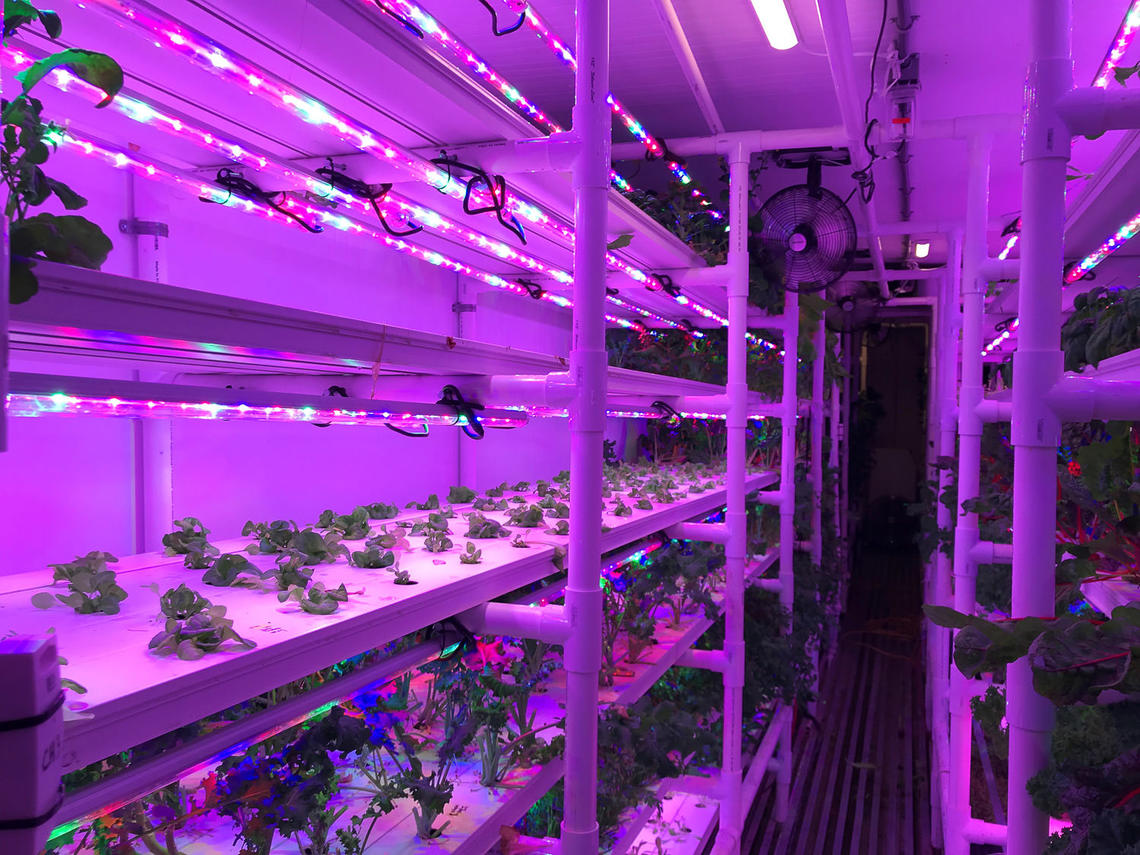April 22, 2022
Off-grid hydroponic food production unit back for 2nd season in Arctic

Forty types of vegetables and herbs, 80-plus happy customers, and 30-plus kilograms of fresh produce per week: Ag1054’s first year of off-grid food production in the Arctic was a huge success.
Ag1054 is Yukon’s first ever off-grid containerized hydroponic unit, operating at the Arctic Institute of North America’s Kluane Lake Research Station (KLRS). The unit is a 40 by eight foot shipping container, powered by solar energy and sustained with well water from the surrounding environment. When fully operational, the system can produce up to 700 individual plants per week.
For year two, the Ag1054 team is looking to expand the capabilities of the unit and open their doors to researchers looking to start related projects.
“We have UCalgary’s only containerized agriculture system, and we can offer researchers the opportunity to conduct research connected to it,” says Dr. Henry Penn, PhD, Ag1054 project lead.
“We have interest in its general operation including energy efficiency and optimization, health intervention options, and experimenting with different crops, but we are also open to new research ideas we haven’t considered.”
- Listen to Penn talk about Ag1054 on this week's episode of Impact Now: Innovations in Arctic Food Production.
Penn put together a list of potential topics as a starting point for interested researchers:
• Energy efficiency and innovation
• Using the waste heat from the system, or recycling it back into the unit
• Business models for containerized agriculture
• Introducing root crops (potatoes, beets, etc.) into the system
• Balancing the growing environment to enhance overall crop health and growth

Inside the Ag1054 container.
Courtesy Henry Penn
Ag1054 is set up for remote support, so researchers aren’t required to be at the station in person for the duration of their research program.
“We are willing to install instrumentation in or on the container and ensure that the data is transferred remotely. There are no limitations,” says Penn. However, KLRS is also open to hosting visiting researchers and has space for the upcoming season.
“We would also be willing to join proposals to support funding for conducting research in/on our container and have options for in-kind support,” says Penn.
The team has made some updates to the unit in advance of the second growing season. “We’ve updated the HVAC unit to better align with the temperatures we’re experiencing at KLRS and to make the container more efficient,” says Penn.
“We’ve created a separate nutrient reservoir for the seedling area to enable us to change the nutrient loads the plants receive at different stages of their growing cycle. Specifically, we’re increasing shelf life by enhancing root growth in the first two weeks of growth.”
Researchers, postdoc or students interested in research opportunities at Ag1054 can contact Penn at henry.penn@ucalgary.ca.
The Arctic Institute of North America (AINA) is Canada’s first and longest-lived Arctic research institute. AINA was created by an Act of Parliament in 1945 as a nonprofit, tax-exempt research and educational organization, and has been a part of the University of Calgary since 1976.





